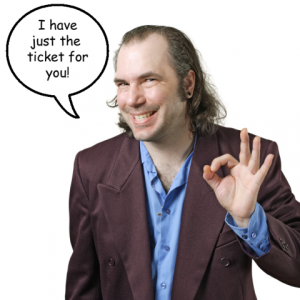 Today I want to share with you what I learned from a bad sales experience and, more importantly, I want to share with you the fundamentals of high trust sales. This post can serve as a intro into the world of sales and offer you valuable secrets that I have learnt from years of sales experience and education. But first I want to share a quick story.
Today I want to share with you what I learned from a bad sales experience and, more importantly, I want to share with you the fundamentals of high trust sales. This post can serve as a intro into the world of sales and offer you valuable secrets that I have learnt from years of sales experience and education. But first I want to share a quick story.
About two years ago, I was strolling through a mall on the Gold Coast in Australia. Coming from Irish and Scottish decent I have a hate/love relationship with the sun. At this time the sun and I were having a break as I had seen too much of it, I had got sunburnt.
I was stopped in my tracks by an attractive saleswoman who wanted to put some moisturiser on my face.
Why not? I thought, I’ll give it a try.
Next she began to tell me how I had done so much damage to my skin and built a wonderfully crafted story to make me feel… well, guilty.
She continued to tell me why my skin was in such bad shape, making me feel more and more guilty. Once she knew I was hooked on the severity of the problem, she explained her product and why I should buy it now. On this particular day I didn’t even have my card so even I wanted to, I couldn’t buy her highly priced moisturising product.
So I walked.
Why did I ALMOST buy the highly priced moisturiser? Because in that moment, I was convinced that my problem was significant enough to buy a solution at a high price. I was convinced for a hour or so that I really needed it. I thought about my skin and the guilt lingered.
Then I clicked.
I saw through the sales hook and began using my logical mind once again. I didn’t need it. She didn’t really care about my skin, instead she cared more about selling product than she did about solving my problem. I researched the product and the ingredients. As it turned out, I could get some moisturiser for 25% of the price of her product and just stay away from sun for a few days. It may seem more obvious from the outside that a pushy sales rep probably doesn’t have the best health advice, but she still managed to get me wanting her product.
She was able to hit me on a emotional nerve. She carefully informed why I should feel guilty in order to make me buy her product. Had I had my card on me, I would have spent the money and bought it, right then and there. I’m certain that many people that day, did buy it. Great salesman but I am about to share with you why this approach can actually harm long term growth of a company.
Like me you’ve probably had some bad experiences with sales people. You’ve felt the pressure, been exposed to sleazy tactics and you always feel used afterwards, right?
Sleazy Sales Fails
The reason why we hate sales is because we feel that they want something from us right? Our money. We’ve all had experience where you’ve bought products you didn’t really need, just because some clever sales convinced us that we needed it. But what about our needs as a customer?
As a sales rep, you have your own agenda. To move products, and to sell as much as you can. The emphasis for the sale rep is on one-time transactions. If a sales rep’s paycheque comes from commissions, then it becomes very tempting for them to pressure customers to buy products. Interestingly, commission based sales reps can also be very effective for a company in order to increase the number of products sold.. in the short term.
If it works to sell products, then it’s great sales right?
Crazy enough, the one-time transaction focus conflicts with objectives of an overall business. If you run a business it may seem great in the short term if sales reps are creating sales but in reality it’s better to focus on the long term and build trust rather than remorse with customers.
Building trust with customers is key, even if it sacrifices some short term profits. Clean-tech businesses sell large sized offerings and often these are B2B (Business to Business) transactions. This means that building trust with customers is more important for clean-tech businesses than it is for a travelling car salesman.
High trust selling
In this post I break down a process that has helped my mentors and I close $100,000′s worth of sales. Ok, not the million dollar deals you’ll hear about from sales guru’s but what is important is that we found using high trust selling our customers trust us, repurchase from us and help us share the word about our products and services. This is vital from a startup’s perspective. If you want to have cost efficient sales in your business then this process will have your past and existing customers bring you more customers to serve, and wouldn’t that be nice.
Ok, so let’s launch into the process.
- Cold Lead
- Problem recognition
- Value explanation
- Prize the offer
- Solve objections
- Maintain relationship
#1 Cold Lead
You want to choose leads that are relevant to the problem you are solving. People that would actually benefit from your product. If you choose leads that aren’t good quality and try to sell them your solution anyway you are violating high trust selling and you are being the sleazy salesman.
#2 Problem recognition
This stage is where the problem you are solving is recognised by the customer. There are two approaches to this from cold leads. The first is the one mentioned before in my story with the moisturiser. The sales rep tells you why you have a problem and pushes for you recognise it. This is driven from her need to sell a product. But what is even more effective is a consultative approach.
Sales is about the customer needs, not yours. I’ll repeat: sales is about the needs of the CUSTOMER! The reason why sleazy sales tactics don’t work as effectively as high trust selling is because the sales rep is pushing their product without a genuine interest in your needs.
“You can make more friends in two months by becoming interested in other people than you can in two years by trying to get other people interested in you.” - Dale Carnegie, How to Win Friends and Influence People
I love this quote because it really connects to the secret to all human relationships. People don’t care about your needs. It’s a harsh reality, but it’s true. If you focus on the needs of someone else and seek to truly understand them you can build trust in their eyes. With this trust they will have faith that you will deliver on your word and help them solve their problem. At this stage of the sales process you want to ask a series of questions specific to the benefits your product provides. The purpose of this is to make sure your product will offer them value and also to encourage them to see how your solution will address their unique needs.
#3 Value Explanation
After you have consulted to hear their needs, you can now walk them through your solution and watch as their eyes light up. Because they have spent time telling you about their problems, they will be more engaged when you offer your unique solution. By addressing their concerns from the previous stage you they will feel understood and see the value FOR THEM in your product or service.
#5 Prize the offer
This is where you make your offer exclusive. Things that are scarce, have value. In order for the customer to make a decision there needs to be an element of “fear of loss” for the customer. If you feel like you want something, and then you learn that you might miss out on it, you will act on it.
This is how you inspire action to be made, whether it be to reach an decision, agreement or sell your product. This is done by drawing customers in rather than pushing your product out. An example could be to explain that there is additional interest your in product and mention that you have other appointments, and clients to attend to. By this stage if the first stages are executed effectively then the customer should be ready to make a decision.
#6 Solve Objections
You maybe more familiar with the term “handling objections”. The reason I have replaced the word ‘handling’ with ‘solving’ is because I think handling implies the sleazy sales tactics we are trying to avoid. The aim is not to make a sale purely for your own benefit. With high trust selling the aim is to make a sale for mutual benefit. With this in mind once you’ve determined the customer needs in stage #2 you can effectively solve any unique concerns or problems that they might have. The purpose here is to make sure they receive the full value of your product, so work with them through this stage.
#7 Maintain Relationship
The aim here is to inspire the customer to continue buying from us into the future. The reason for this is that one-time transactions are not cost efficient. Repeat business is key to building a sustainable business. Treat your customers how you would like to be treated and remember to offer as much support and value as possible. If you care for them, they will trust you and come back for more.
More resources
This process is something I have learned in my personal experience in sales. Real world education and it has worked amazingly for myself and others that implement it. There are also some more detailed and practical resources out there. I recently ran into an great post on Hack the System with Maneesh Sethi. I was reading Maneeshi’s site to learn about productivity hacking (Do yourself a favour and check out his site) when I saw a guest post written by Alan VanToai which details a practical guide for startup sales. You can find the post here. It’s a great resource from his own real world experiences in startup sales.
By the way, this is only scratching the surface of sales.
My goal here is to provide a framework for you and share what I have learnt in my years of working a cold sales rep. There are many flashy sales terms and processes, but once you have gone out and tried to sell, you work out that most processes work it’s more to do with deciding which process will work best for your goals.
High trust selling encourages repeat business by treating customers the way you would liked to be treated. No pressure tactics or guilt tripping, just honest customer problem solving. Offering value by helping the customer find a solution to their concerns and problems. High trust sales evaluates whether the customer will gain value from your offering and if it looks like they won’t you have to be willing to send them elsewhere.
Authenticity is the best policy for influence.
So if you want customers to return, remember that the purpose of your sales should be to build trust from an authentic relationship, not make a sleazy one-time transaction!
Become an ECO founder
Start the 30 day ECO founder Challenge (it’s free!) to learn how to startup your own clean technology business.
No spam, ever. You can unsubscribe at anytime.




Pingback: Reading to the top | Eco Founder()
Pingback: Succeed at Anything: The Power of Reading | Eco Founder()
Pingback: Research Your Customers - Eco Founder()
Pingback: Succeed at Anything: The Power of Reading - Eco Founder()
Pingback: Top 3 Traps to Avoid In Your Elevator Pitch - Eco Founder()
Pingback: Top 3 Traps to Avoid In Your Business Pitch - Eco Founder()
Pingback: How to Build an Killer Elevator Pitch - Eco Founder()
Pingback: Mechanical Engineer Shares What They DON'T Teach You In College()